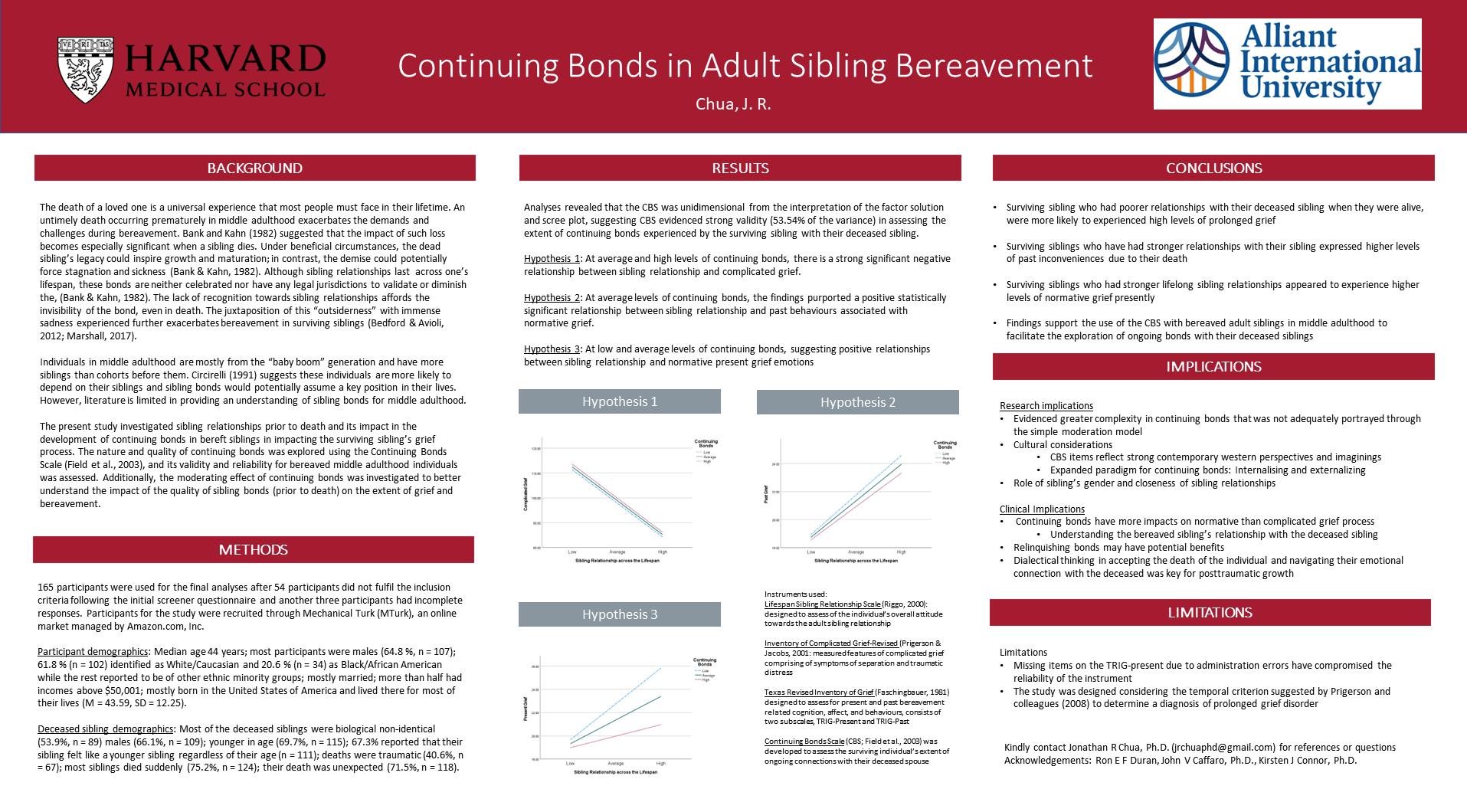Scientific Abstract
Background: Bereaved siblings experience profound loss which often is exacerbated by their intricate and intimate siblingship. Present literature also appeared impoverished in its understanding of adult sibling bereavement. The current study investigated the moderating role of maintaining bonds with deceased siblings in impacting the surviving adult sibling’s grief processes considering their prior lifespan sibling relationship.
Methods: Participants were recruited through an online marketplace and 165 survey responses were included in the final analyses. Participant demographics: Median age 44 years; mostly males (64.8 %); 61.8 % identified as White/Caucasian and 20.6 % (n = 34) as Black/African American; mostly married, born in the United States of America and lived there for most of their lives. Deceased sibling demographics: Mostly biological non-identical brothers who are younger in age; 67.3% reported that their sibling felt like a younger sibling regardless of their age (n = 111); deaths were traumatic, sudden, and unexpected.
Results: Hypothesis 1: At average and high levels of continuing bonds, there is a strong significant negative relationship between sibling relationship and complicated grief. Hypothesis 2: At average levels of continuing bonds, the findings purported a positive statistically significant relationship between sibling relationship and past behaviours associated with normative grief. Hypothesis 3: At low and average levels of continuing bonds, suggesting positive relationships between sibling relationship and normative present grief emotions.
Conclusions: Current findings espoused bereaved siblings who had poorer lifespan sibling relationships were more likely to experience higher levels of prolonged grief, while individuals who had stronger lifespan siblingship articulated higher levels of normative grief. Furthermore, factor analysis of the Continuing Bonds Scale using the current sample revealed high validity of this instrument and supported its use with bereaved adult siblings. Findings suggested the need for more research to better understand the complexity of continuing bonds in influencing bereavement in siblings.
Search posters

